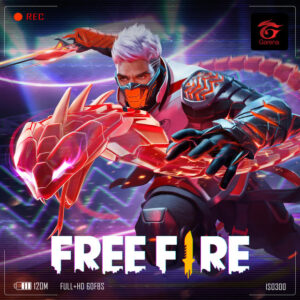The Developer’s Dilemma: Speed Over Nostalgia in High-End Porting
Popular Now
 Valorant
Valorant
 Rust
Rust
 Free Fire
Free Fire
 The Legend of Zelda
The Legend of Zelda
 Minecraft
Minecraft
 Poppy Playtime
Poppy Playtime
 Brawl Stars
Brawl Stars
 Among Us
Among Us
 Black Myth: Wukong
Black Myth: Wukong
 Candy Crush Saga
Candy Crush Saga
 The introduction of Nintendo Switch 2’s “Game-Key Cards”—physical cartridges that contain only a license key, requiring a full digital download—has become a major flashpoint for gamers worldwide. The controversial format, which compromises the traditional benefits of physical media such as true game ownership and server-independent preservation, has been met with widespread negativity. Now, a prominent voice from the AAA JRPG space has weighed in, offering a candid and surprisingly sympathetic defense of the system from a developer’s perspective.
The introduction of Nintendo Switch 2’s “Game-Key Cards”—physical cartridges that contain only a license key, requiring a full digital download—has become a major flashpoint for gamers worldwide. The controversial format, which compromises the traditional benefits of physical media such as true game ownership and server-independent preservation, has been met with widespread negativity. Now, a prominent voice from the AAA JRPG space has weighed in, offering a candid and surprisingly sympathetic defense of the system from a developer’s perspective.
Naoki Hamaguchi, co-director of Final Fantasy VII Remake and director of Final Fantasy VII Rebirth, acknowledged the consumer backlash but stressed that the format is a functional necessity for bringing high-fidelity experiences, such as the upcoming Final Fantasy VII Remake Intergrade, to Nintendo’s new console.
“I really get where people are coming from in terms of their negativity towards it, and there are good reasons and debates to have there.” Hamaguchi stated in a recent interview. He then clarified that the discussion amongst developers focuses on different, more technical priorities:
“But certainly, among developers, the discussion about the Game-Key Card format is perhaps a bit different to what the fans maybe expect.”
The Core Technical Constraint: Cartridge Speed vs. SSD Performance
Hamaguchi’s defense centers not on the frequently cited issues of cost or even the 64GB memory cap of the largest standard Switch 2 cartridges, but on a crucial performance metric: loading speed.
- The Speed Disparity: The internal Solid-State Drive (SSD) of the Switch 2 offers significantly faster data read speeds than the dedicated game cartridges. In an era of expansive open-world games and highly detailed HD assets, quick loading is critical for a smooth user experience.
- The Developer’s Choice: According to Hamaguchi, for resource-intensive titles like the Final Fantasy VII Remake trilogy, relying entirely on the physical cartridge for data streaming would result in performance that is noticeably “inferior” to what modern gamers expect.
- Enabling High-End Games: By utilizing the Game-Key Card, which forces a download to the internal storage, developers can leverage the Switch 2’s faster SSD for smoother loading and better overall performance. This, Hamaguchi argues, “lets us do things that maybe we wouldn’t otherwise,” making the port of massive games like FFVII Remake Intergrade (which requires over 90GB of storage) technically feasible on the hybrid console.
This reasoning echoes similar sentiments from developers at Ubisoft, who also cited the need for high-speed data streaming as the reason for opting for a Game-Key Card release for their open-world title, Star Wars Outlaws.
The Dual-Edged Sword: Ownership and Preservation Concerns
While the technical argument for performance optimization is compelling, it does not alleviate the significant concerns raised by consumers and game preservation advocates. The system represents a hybrid that, in the eyes of many, captures the drawbacks of both physical and digital media:
- Physical Burden, Digital Dependency: Players must still purchase and physically insert the card (which acts as a Digital Rights Management (DRM) key), yet they must also dedicate substantial internal or Micro SD Express storage space to the game file and remain dependent on Nintendo’s eShop servers for the initial download.
- The Preservation Nightmare: The greatest long-term concern is that these titles will be unplayable once Nintendo eventually decommissions its download servers. This has led to the symbolic refusal of institutions like Japan’s National Diet Library to archive Game-Key Card titles, further highlighting their perceived failure as true physical media for long-term ownership.
Hamaguchi acknowledged these valid points but made a plea for understanding, suggesting that players should attempt to accept the format “as part of the culture of gaming on Switch.” He views it as a positive “option” that expands the console’s library with high-end experiences that might otherwise bypass the platform entirely.
Looking Ahead: The Future of Physical Media in the Console Ecosystem
The controversy surrounding the Game-Key Cards places Nintendo at the center of the ongoing debate about the future of physical media. Publishers like Square Enix are clearly prioritizing immediate game performance and the lucrative opportunity to bring their flagship franchises to the massive Nintendo audience.
The developer’s statement confirms that the industry’s shift toward huge file sizes and reliance on high-speed data access (like that provided by an SSD) is directly dictating the form of physical game distribution. For JRPG fans and collectors, this means grappling with the fact that their desire for a truly complete, self-contained physical copy is increasingly incompatible with the technical demands of modern Triple-A game development. The question is whether the improved performance and expanded library are a worthwhile trade-off for diminished long-term preservation and ownership.
The reality, as articulated by the Final Fantasy co-director, is that the Game-Key Card is a necessary compromise born from hardware limitations, allowing Square Enix to deliver a high-quality, graphically demanding title to the Nintendo Switch 2 user base.





